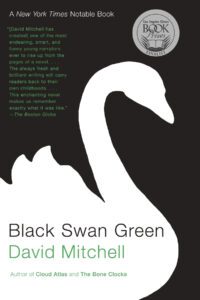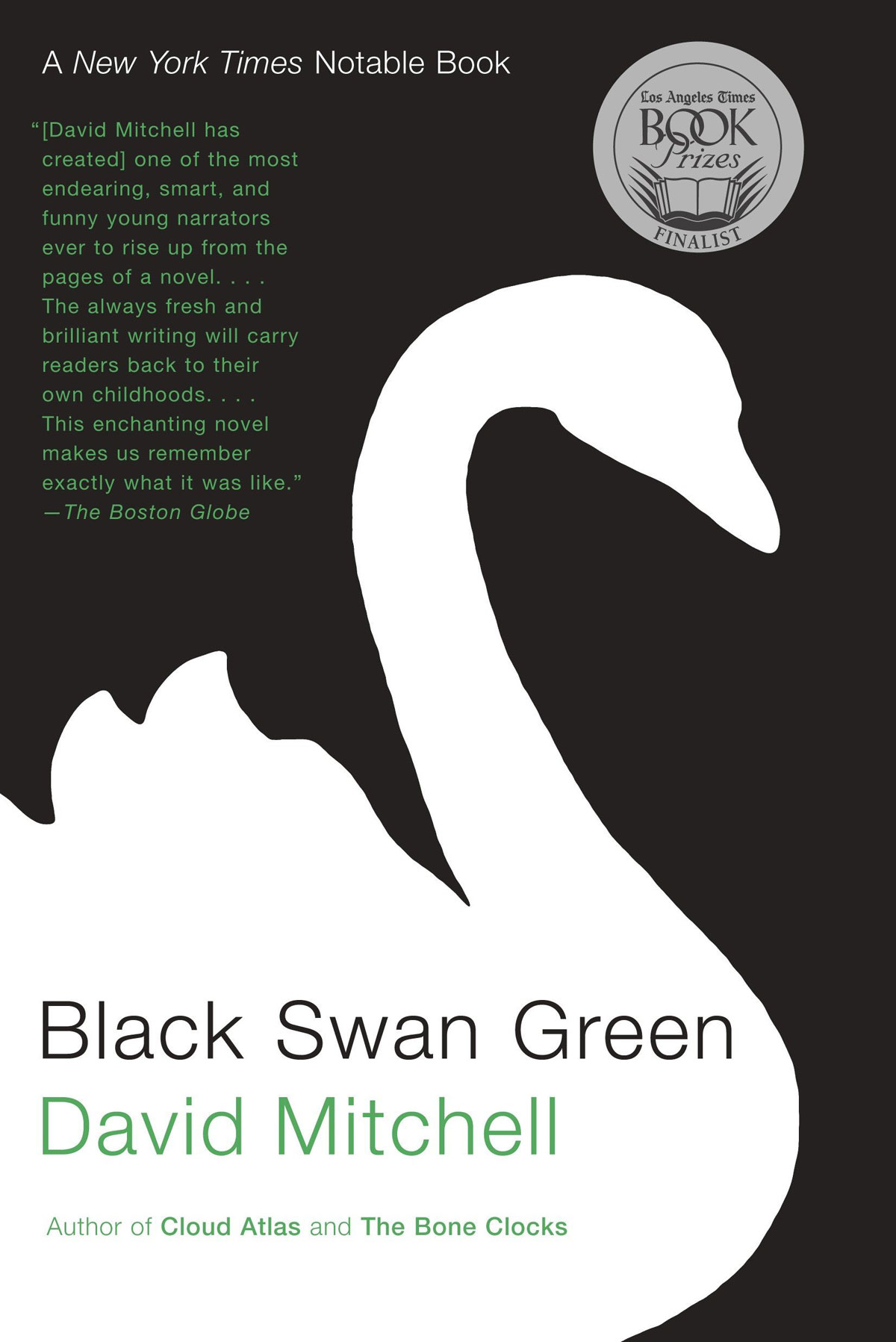
Author: David Mitchell
Publication Year: 2006
Length: 296 pages
David Mitchell is usually the master of the weird postmodern mindfuck. He somehow melds traditional storytelling with sci-fi and mystery. It’s like a nerdy reader’s dream. Both Cloud Atlas and Ghostwritten had me shaking with anticipation for Black Swan Green. How would he challenge narrative structures this time? How would he bend space and time and make me just hate myself for never being able to think of anything so clever? It turns out he didn’t. He wrote what amounts to a pretty straight-forward coming of age story about a boy with a stutter in a small British town. I read on, always expecting the unexpected to pop up on the next page. And it ever did. There was one scene early on in the book that was a little oddball, and I thought might hint at a deeper mysticism or magic, but it too turned out to be pretty normal. We get in the head of our narrator, who references both “the hangman” in relations to his stutter, and “unborn twin” referring to what amounts to the devil on his shoulder. Again, I kept expecting some sort of wackiness around these two “characters,” but nothing came of it, and they just remained nicknames for things going on inside his head. I finally had to put aside my expectations for another Mitchell-type novel, and settle in to the fact that this was just going to be what it was going to be. So, as a coming-of-age novel, it turned out not to be bad. Mitchell writes in a compelling way that is neither flowery nor overly-simple. His characters, while pretty tame in this case, are entertaining and all seem to have an underlying sadness about them. Our main character is just a normal kid in a school in the English countryside complete with a kid hierarchy filled with bullies and nerds and the overwhelming dread that one day his stutter will come to light and send him spiraling to the bottom of the food chain. While he keeps that fine social balance in check at school, his family life is unraveling before his eyes. This is another one of those slice-of-life stories in which not a ton happens in the broad world, but ultimately, through his interactions, transforms the main character thoroughly. There is some Catcher in the Rye stuff going on here, but it’s also clear that Mitchell’s life ran some parallels as well. It’ll be interesting to see what his next novel brings–suburban tales of childhood or century-leaping postmodern masterpiece?


